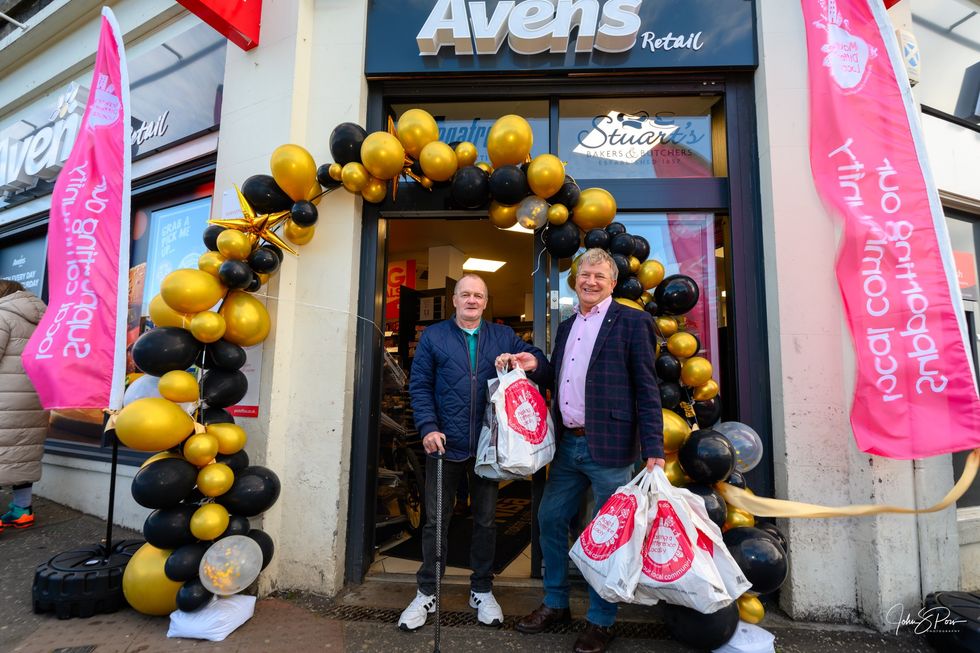Avens Retail, an independent retailer operating as part of the Nisa network, recently celebrated the grand reopening of two stores in Ballingry and Overton Road.
The exciting launch events, attended by members of the community and local figures, highlighted Avens’ commitment to supporting local suppliers and enhancing its neighbourhood presence.
The two openings featured ribbon-cutting ceremonies with notable local icons, including MSP David Torrance and retired Scottish footballer Ally Mitchell, along with family-friendly activities, charity raffles, and giveaways for the first visitors.
The celebrations marked a major step in Avens’ mission to create stores that blend community focus with a quality, local product range.Operating under the Avens fascia—a name inspired by a flower native to Scotland and northern England—the stores reflected Avens’ emphasis on locally sourced products and regional partnerships.
Partnering with over 95 suppliers, including award-winning butcher Tom Course and a local fresh fish provider, Avens expanded its product selection to over 4,000 items, focusing on fresh produce, quality meats, and bakery options. The stores feature a broad array of Co-op own-brand products, which have become a trusted option among customers for their quality and value.
These offerings are part of Avens’ collaboration with Nisa, allowing the retailer to maintain a unique, independent identity while benefiting from their partnership with Nisa. In addition, Avens introduced a year-round free fruit programme for primary school children, following its success as a summer initiative.
This programme, along with other community-centred efforts, reflects Avens’ dedication to supporting the health and well-being of its local residents.Avens’ new stores in Ballingry and Overton Road represent the brand’s distinctive model, combining Nisa’s support with a strong local ethos. Through these new openings, Avens continues to prioritise community values and customer-first service, reinforcing its role as a trusted, independent retailer in the region.
Zahid Mukhtar, Owner of Avens Retail said: "The launch of our new stores in Ballingry and Overton Road is an exciting milestone for Avens Retail and a testament to our commitment to the communities we serve. These vibrant openings are more than just ribbon-cutting ceremonies; they mark the beginning of a new chapter where we’re bringing a carefully curated selection of local products, trusted Co-op own-brand items, and unique community programmes to our customers.
"Partnering with Nisa allows us to deliver on quality and value while staying deeply rooted in local traditions and priorities."
Michael Love, Key Account Manager at Nisa, said: “We’re thrilled to see the successful launch of Avens Retail’s new stores in Ballingry and Overton Road. This marks an exciting milestone in their journey, and we’re proud to continue supporting Avens in their mission to provide high-quality, locally sourced products to the community.
"Their commitment to local suppliers, alongside the trusted Co-op own-brand offerings, reflects the strong partnership between Nisa and independent retailers. These new stores are a testament to Avens’ dedication to serving their communities and reinforcing the importance of independent retail within the regions they operate.”








